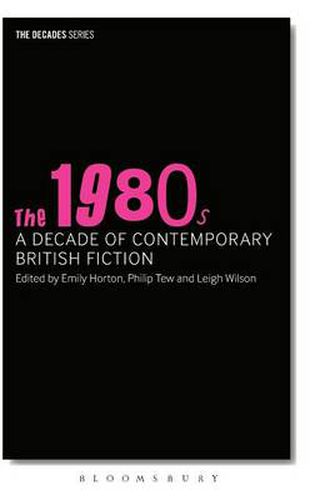Readings Newsletter
Become a Readings Member to make your shopping experience even easier.
Sign in or sign up for free!
You’re not far away from qualifying for FREE standard shipping within Australia
You’ve qualified for FREE standard shipping within Australia
The cart is loading…






How did social, cultural and political events in Britain during the 1980s shape contemporary British fiction?
Setting the fiction squarely within the context of Conservative politics and questions about culture and national identity, this volume reveals how the decade associated with Thatcherism frames the work of Kazuo Ishiguro, Martin Amis, and Graham Swift, of Scottish novelists and new diasporic writers. How and why 1980s fiction is a response to particular psychological, social and economic pressures is explored in detail. Drawing on the rise of individualism and the birth of neo-liberalism, contributors reflect on the tense relations between 1980s politics and realism, and between elegy and satire. Noting the creation of a ‘heritage industry’ during the decade, the rise of the historical novel is also considered against broader cultural changes. Viewed from the perspective of more recent theorisations of crisis following both 9/11 and the 21st-century financial crash, this study makes sense of why and how writers of the 1980s constructed fictions in response to this decade’s own set of fundamental crises.
$9.00 standard shipping within Australia
FREE standard shipping within Australia for orders over $100.00
Express & International shipping calculated at checkout
How did social, cultural and political events in Britain during the 1980s shape contemporary British fiction?
Setting the fiction squarely within the context of Conservative politics and questions about culture and national identity, this volume reveals how the decade associated with Thatcherism frames the work of Kazuo Ishiguro, Martin Amis, and Graham Swift, of Scottish novelists and new diasporic writers. How and why 1980s fiction is a response to particular psychological, social and economic pressures is explored in detail. Drawing on the rise of individualism and the birth of neo-liberalism, contributors reflect on the tense relations between 1980s politics and realism, and between elegy and satire. Noting the creation of a ‘heritage industry’ during the decade, the rise of the historical novel is also considered against broader cultural changes. Viewed from the perspective of more recent theorisations of crisis following both 9/11 and the 21st-century financial crash, this study makes sense of why and how writers of the 1980s constructed fictions in response to this decade’s own set of fundamental crises.